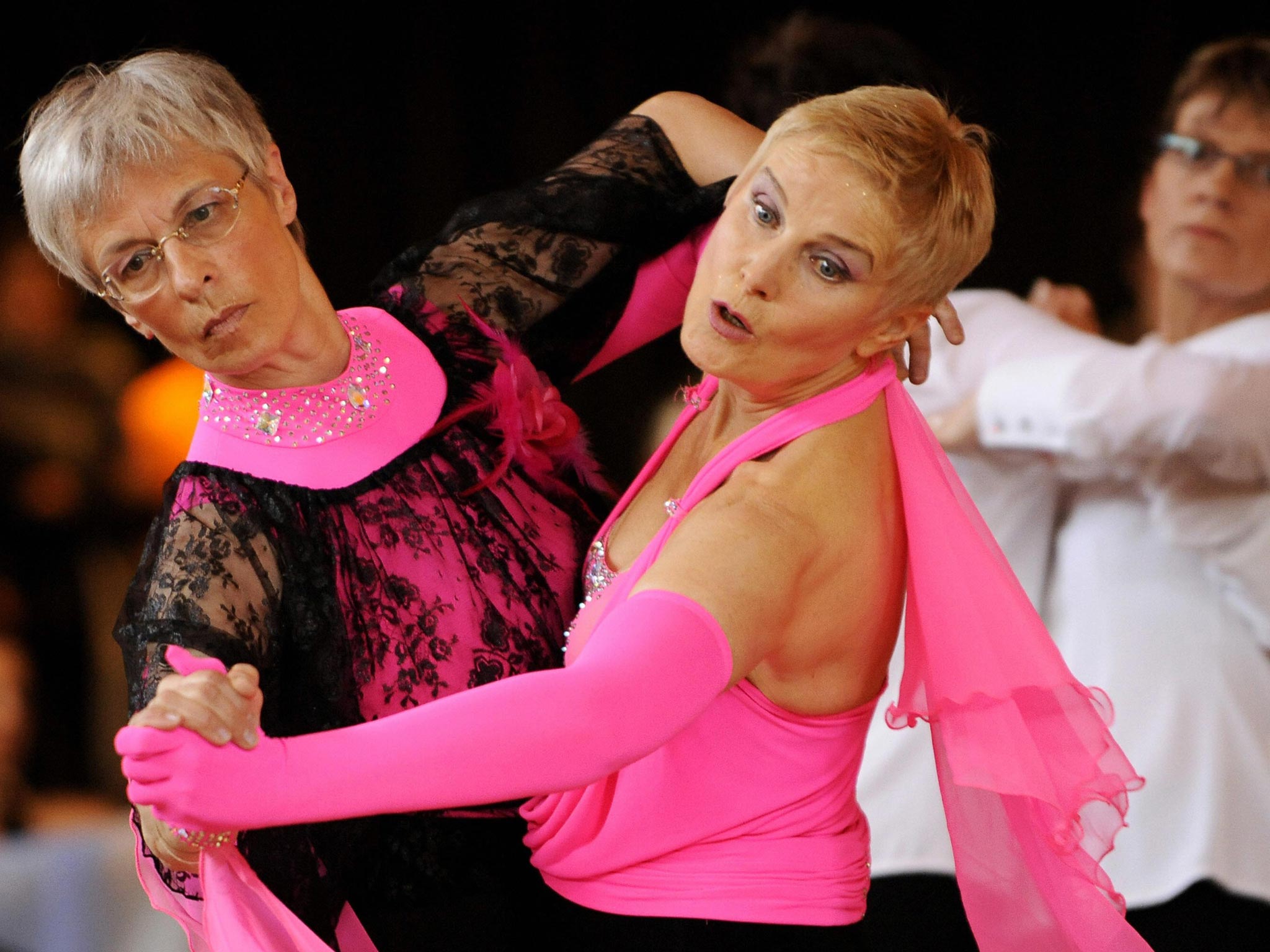Potential ban of same-sex partners in ballroom dancing competitions may amount to 'illegal discrimination', say equal rights campaigners
Currently there is nothing to prevent same-sex couples from competing against mixed-sex partners at any of Britain's ballroom dancing events

Your support helps us to tell the story
From reproductive rights to climate change to Big Tech, The Independent is on the ground when the story is developing. Whether it's investigating the financials of Elon Musk's pro-Trump PAC or producing our latest documentary, 'The A Word', which shines a light on the American women fighting for reproductive rights, we know how important it is to parse out the facts from the messaging.
At such a critical moment in US history, we need reporters on the ground. Your donation allows us to keep sending journalists to speak to both sides of the story.
The Independent is trusted by Americans across the entire political spectrum. And unlike many other quality news outlets, we choose not to lock Americans out of our reporting and analysis with paywalls. We believe quality journalism should be available to everyone, paid for by those who can afford it.
Your support makes all the difference.Same-sex partners could be banned from taking part in ballroom dancing competitions under new rules being considered by the UK’s official governing body.
Currently there is nothing to prevent all-male or all-female couples from competing against mixed sex partners at any of the country’s ballroom dancing events. But under new proposals being considered by the British Dance Council (BDC), a partnership will be defined as having to consist of “one man and one lady...unless otherwise stated”.
In a letter to the secretaries of the organisation’s corporate members, BDC president Bryan Allen said the new rules would “take into consideration the feelings of the competitors” and “the physical strength and stamina of a same-sex couple”.
But the new definition was criticised last night by same-sex dancers and equal rights campaigners, who said it was a “huge backward step” and may even amount to illegal discrimination.
John Church and Alex Lewalle are one of Britain’s most successful all-male dance partners. Mr Church told The Independent he was “horrified” when he heard about the proposed change to the rules. “As far as I’m concerned, it’s discriminatory,” he said.
“If it goes through, it means basically the end to my dancing career on the mainstream scene, which is where I want to be dancing. There’s only one same-sex dance competition in the UK every year, so there’s only one competition we could dance in – otherwise we’d have to go abroad.”
He added that the world of ballroom dancing had always been fairly “traditionalist” and “conservative” and suggested that the proposed changes to the rules may have been put forward by rival dancers who were jealous of the success enjoyed by all-male partners.
“I do believe that there is a very small minority of competitors who dislike seeing men dance together…some people don’t like change,” he said. “They don’t like to see something that’s different on the floor – and particularly when the ‘different’ couple are doing so well and beating them.”
Heather Devine and Chrisi Lyons are the current European Same-Sex Senior Women’s Champions. Ms Devine argued the idea that all-male dance partners have a physical advantage over mixed-sex couples was wrong.
“Dancing isn’t about power and strength – it’s not like a competitive sport, about what weights you lift or how hard you can hit a ball. It’s about musicality, expression, poise, technique and beauty,” she said.
Mr Allen said the BDC had “no intention” of banning same-sex couples from competitions and that it would be left up to individual events to interpret the new definition as they wished. “If all promoters said ‘it’s for mixed-sex couples only’, [a ban] could be a possibility, but I can’t imagine that,” he said.
Asked whether all-male partners had an unfair advantage, he added: “You don’t have two men in the mixed doubles at Wimbledon. The skill factor is the same, whether you’re mixed-sex or same-sex, but there are other factors involved. It’s an attempt to make it fairer for everybody.”
But human rights campaigner Peter Tatchell described the new definition as “a complete cop-out”.
He added: “For same-sex couples to depend upon the whim of the British Dance Council and individual competition organisers is extremely unfair. The default position is that same-sex couples are banned.”
Join our commenting forum
Join thought-provoking conversations, follow other Independent readers and see their replies
Comments